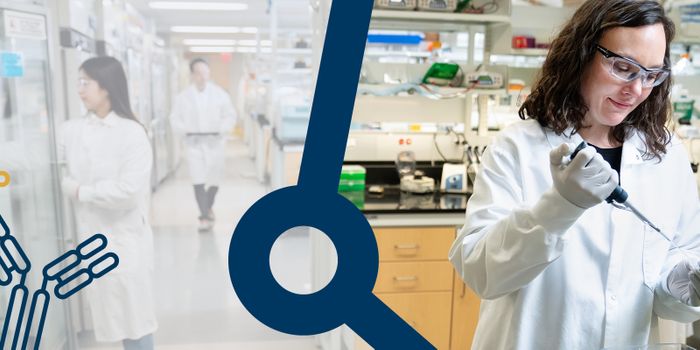While osteosarcoma, the most common type of cancer that starts in the bone, is rare, the consequences can be devastating. About 800 new cases of osteosarcoma are diagnosed in the United States each year, and about half are in children and teens. Osteosarcomas account for about 2% of childhood cancers and a much smaller portion of adult cancers, according to the American Cancer Society (http://www.cancer.org/cancer/osteosarcoma/overviewguide).

Now a new study indicates that inherited variations in a known tumor suppressor gene among children and adolescents with osteosarcoma are more common than researchers believed. While older patients who are prone to this type of cancer did not have mutations in the gene, known as TP53, the study showed that the genetic susceptibility to young onset osteosarcoma is distinct from older adult onset osteosarcoma. Published online April 20, 2015, in the Journal of the National Cancer Institute, the research was conducted by Lisa Mirabello, Ph.D., of the National Cancer Institute's (NCI) Division of Cancer Epidemiology and Genetics, a division of the National Institutes of Health (NIH) (http://www.cancer.gov/news-events/press-releases/2015/osteosarcoma-tp53-inherited-gene-mutation-adolescents).
The occurrence of osteosarcoma is highest in people between the ages of 10 and 19. People with certain rare, inherited cancer syndromes have an increased risk of getting the disease. One of the syndromes is Li-Fraumeni syndrome (LFS), which the NCI study describes as "a cancer predisposition syndrome that is most often caused by germline or inherited mutations in the TP53 gene." Thus, according to the study, "LFS results in a constellation of tumors, often occurring at very young ages. Osteosarcoma can also occur in families that are not known to have LFS. The role of inherited TP53 mutations in osteosarcoma patients not known to have LFS is not very well understood."
In order to understand the relationship between TP53 mutations and osteosarcoma, the NCI researchers sequenced the TP53 gene in a random set of 765 osteosarcoma patients. This represents the largest population evaluated for these mutations thus far. DNA was extracted for sequencing from cells found in the blood or in tissue in the mouth of the patients. DNA from the patients' tumors was not obtainable.
Dr. Mirabello explained, "We found a higher than expected prevalence of TP53 mutations in young patients. In particular, we observed mutations known to be associated with Li-Fraumeni syndrome as well as rare and potentially highly damaging novel genetic changes. Some of these changes were associated with risk of metastasis at diagnosis, as well as lower survival independent of the presence of metastatic disease."
While the prevalence of the TP53 gene in osteosarcoma patients had been reported as approximately 3 percent prior to this study, the NCI researchers found that among the young (less than age 30) osteosarcoma patients, 3.8 percent carried an LFS-associated mutation in the TP53 gene and 5.7 percent carried a rare TP53 variation of the gene, for a total prevalence of TP53 mutations of 9.5 percent. On the other hand, none of the older osteosarcoma patients had an LFS-associated mutation.
The osteosarcoma patients had been identified based on previous studies, so the researchers did not possess information on family history of cancer. The researchers deemed the finding that nearly 4 percent of pediatric osteosarcoma cases have a LFS-associated germline TP53 mutation important, because these individuals, and possibly other members of their families, could be at risk of developing other LFS-associated cancers and because individuals with LFS have a substantial risk for a second cancer.
According to Doug Lowy, M.D., acting director, NCI, "The findings highlight the potential importance of sequencing the germline DNA in patients with pediatric osteosarcoma, because the germline analysis might uncover new cases of Li-Fraumeni syndrome."
The researchers concluded that knowing the risk could help clinicians to offer genetic counseling and cancer screening in order to detect subsequent malignancies at an earlier stage and possibly improve patient survival. Further research is also needed to understand the 90 percent of osteosarcomas that develop in young people and do not have germline TP53 mutations.









